A Nation of Takers
$12.92

In A Nation of Takers: America’s Entitlement Epidemic, one of our country’s foremost demographers, Nicholas Eberstadt, details the exponential growth in entitlement spending over the past fifty years. As he notes, in 1960, entitlement payments accounted for well under a third of the federal government’s total outlays. Today, entitlement spending accounts for a full two-thirds of the federal budget. Drawing on an impressive array of data and employing a range of easy-to-read, four color charts, Eberstadt shows the unchecked spiral of spending on a range of entitlements, everything from medicare to disability payments. But Eberstadt does not just chart the astonishing growth of entitlement spending, he also details the enormous economic and cultural costs of this epidemic. He powerfully argues that while this spending certainly drains our federal coffers, it also has a very real,long-lasting, negative impact on the character of our citizens.
Also included in the book are responses to Eberstadt’s argument from other leading political theorists, William Galston—who questions Eberstadt’s causal links between government programs and dependence—and Yuval Levin—who suggests that the problems posed by dependence may, in fact, run even deeper than Eberstadt suggests. A final response from Eberstadt puts everything in perspective and invites the rest of us to lend our voices to the conversation.
Description
About the Authors

Credit: AEI
Nicholas Eberstadt holds the Henry Wendt Chair in Political Economy at the American Enterprise Institute (AEI), where he researches and writes extensively on demographics and economic development generally, and more specifically on international security in the Korean peninsula and Asia. Domestically, he focuses on poverty and social well-being. Dr. Eberstadt is also a senior adviser to the National Bureau of Asian Research (NBR).
His many books and monographs include Poverty in China (IDI, 1979); The Tyranny of Numbers (AEI Press, 1995); The End of North Korea (AEI Press, 1999); The Poverty of the Poverty Rate (AEI Press, 2008); Russia’s Peacetime Demographic Crisis (NBR, 2010); and A Nation of Takers: America’s Entitlement Epidemic (Templeton Press, 2012). His latest book is Men Without Work: America’s Invisible Crisis (Templeton Press, 2016).
He has offered invited testimony before Congress on numerous occasions and has served as consultant or adviser for a variety of units within the US government. His appearances on radio and television range from NPR to CNN’s The Situation Room with Wolf Blitzer.
Mr. Eberstadt has a Ph.D. in political economy and government, an M.P.A. from the Kennedy School of Government, and an A.B. from Harvard University. In addition, he holds a Master of Science from the London School of Economics.
In 2012, Mr. Eberstadt was awarded the prestigious Bradley Prize.

Credit: EPPC
Yuval Levin is the Hertog Fellow at the Ethics and Public Policy Center and the editor of National Affairs magazine.
His essays and articles have appeared in numerous publications including the New York Times, the Washington Post, the Wall Street Journal, Commentary, and others. He is a contributing editor of National Review and The Weekly Standard, a senior editor of EPPC’s journal The New Atlantis and, most recently, author of The Fractured Republic: Renewing America’s Social Contract in the Age of Individualism. He is a recipient of a 2013 Bradley Prize for intellectual achievement.
Before joining EPPC, Mr. Levin served on the White House domestic policy staff under President George W. Bush. He has also been Executive Director of the President’s Council on Bioethics and a congressional staffer. He holds a B.A. from American University and a Ph.D. from the University of Chicago.

Credit: Brookings
William A. Galston holds the Ezra K. Zilkha Chair in the Brookings Institution’s Governance Studies Program, where he serves as a senior fellow. A former policy advisor to President Clinton and presidential candidates, Galston is an expert on domestic policy, political campaigns, and elections. His current research focuses on designing a new social contract and the implications of political polarization.
He is also College Park Professor at the University of Maryland. Prior to January 2006, he was Saul Stern Professor and Acting Dean at the School of Public Policy, University of Maryland, director of the Institute for Philosophy and Public Policy, founding director of the Center for Information and Research on Civic Learning and Engagement (CIRCLE), and executive director of the National Commission on Civic Renewal, co-chaired by William Bennett and Sam Nunn. A participant in six presidential campaigns, he served from 1993 to 1995 as Deputy Assistant to President Clinton for Domestic Policy. From 1969 to 1970 Galston served as a member of the United States Marine Corps and was honorably discharged.
Galston is the author of eight books and more than 100 articles in the fields of political theory, public policy, and American politics. His most recent books are Liberal Pluralism (Cambridge, 2002), The Practice of Liberal Pluralism (Cambridge, 2004), and Public Matters (Rowman & Littlefield, 2005). A winner of the American Political Science Association’s Hubert H. Humphrey Award, he was elected a Fellow of the American Academy of Arts and Sciences in 2004.
Galston has appeared on all the principal television networks and is a frequent commentator on NPR. He writes a weekly column for the Wall Street Journal.
3 reviews for A Nation of Takers
Quick Comparison
| Settings | A Nation of Takers remove | Men Without Work remove | False Black Power? remove | Bring Back the Bureaucrats remove | New Threats to Freedom remove | The American Dream Is Not Dead remove |
|---|---|---|---|---|---|---|
| Name | A Nation of Takers remove | Men Without Work remove | False Black Power? remove | Bring Back the Bureaucrats remove | New Threats to Freedom remove | The American Dream Is Not Dead remove |
| Image | 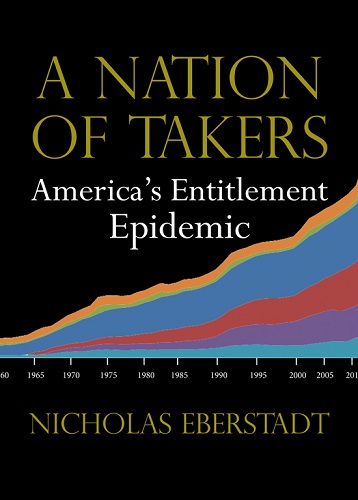 | 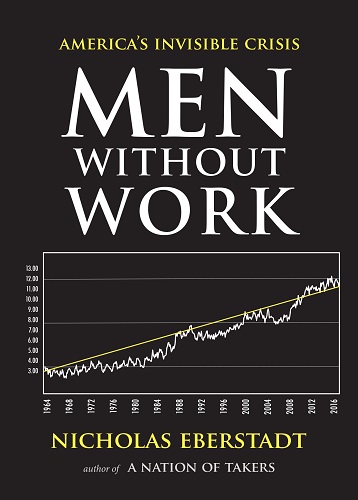 | 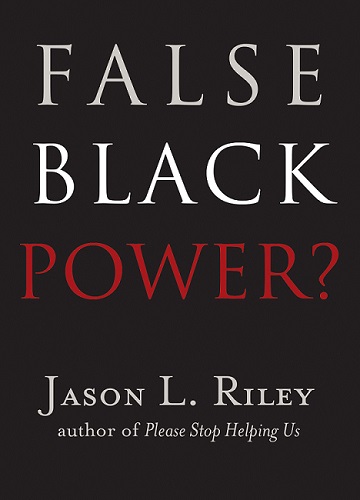 | 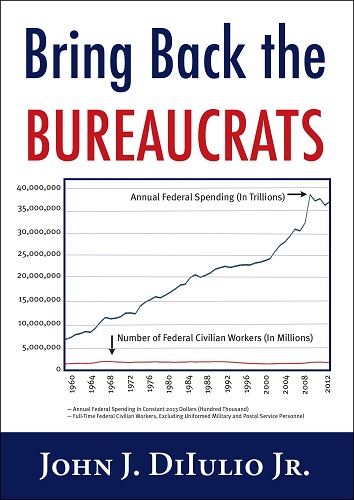 |  | 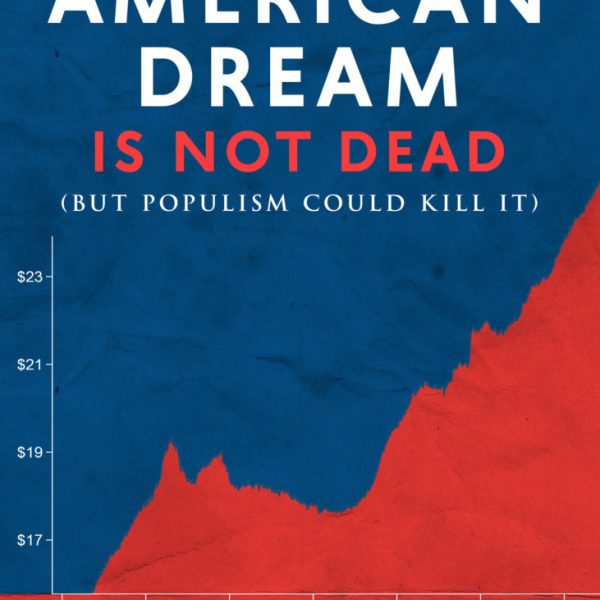 |
| SKU | ||||||
| Rating | ||||||
| Price | $12.92 | $11.20 | $12.29 | $9.99 | $11.09 | |
| Stock | ||||||
| Availability | ||||||
| Add to cart | ||||||
| Description |  Buy the Book
In A Nation of Takers: America’s Entitlement Epidemic, one of our country’s foremost demographers, Nicholas Eberstadt, details the exponential growth in entitlement spending over the past fifty years. As he notes, in 1960, entitlement payments accounted for well under a third of the federal government’s total outlays. Today, entitlement spending accounts for a full two-thirds of the federal budget. Drawing on an impressive array of data and employing a range of easy-to-read, four color charts, Eberstadt shows the unchecked spiral of spending on a range of entitlements, everything from medicare to disability payments. But Eberstadt does not just chart the astonishing growth of entitlement spending, he also details the enormous economic and cultural costs of this epidemic. He powerfully argues that while this spending certainly drains our federal coffers, it also has a very real,long-lasting, negative impact on the character of our citizens.
Also included in the book are responses to Eberstadt’s argument from other leading political theorists, William Galston—who questions Eberstadt’s causal links between government programs and dependence—and Yuval Levin—who suggests that the problems posed by dependence may, in fact, run even deeper than Eberstadt suggests. A final response from Eberstadt puts everything in perspective and invites the rest of us to lend our voices to the conversation.
| By one reading, things look pretty good for Americans today: the country is richer than ever before and the unemployment rate is down by half since the Great Recession—lower today, in fact, than for most of the postwar era. But a closer look shows that something is going seriously wrong. This is the collapse of work—most especially among America’s men. Nicholas Eberstadt, a political economist who holds the Henry Wendt Chair in Political Economy at the American Enterprise Institute, shows that while “unemployment” has gone down, America’s work rate is also lower today than a generation ago—and that the work rate for US men has been spiraling downward for half a century. Astonishingly, the work rate for American males aged twenty-five to fifty-four—or “men of prime working age”—was actually slightly lower in 2015 than it had been in 1940: before the War, and at the tail end of the Great Depression. Today, nearly one in six prime working age men has no paid work at all—and nearly one in eight is out of the labor force entirely, neither working nor even looking for work. This new normal of “men without work,” argues Eberstadt, is “America’s invisible crisis.” So who are these men? How did they get there? What are they doing with their time? And what are the implications of this exit from work for American society? Nicholas Eberstadt lays out the issue and Jared Bernstein from the left and Henry Olsen from the right offer their responses to this national crisis. | Black civil rights leaders have long supported ethnic identity politics and prioritized the integration of political institutions, and seldom has that strategy been questioned. In False Black Power, Jason L. Riley takes an honest, factual look at why increased black political power has not paid off in the ways that civil rights leadership has promised. Recent decades have witnessed a proliferation of black elected officials, culminating in the historic presidency of Barack Obama. However, racial gaps in employment, income, homeownership, academic achievement, and other measures not only continue but in some cases have even widened. While other racial and ethnic groups in America have made economic advancement a priority, the focus on political capital for blacks has been a disadvantage, blocking them from the fiscal capital that helped power upward mobility among other groups. Riley explains why the political strategy of civil rights leaders has left so many blacks behind. The key to black economic advancement today is overcoming cultural handicaps, not attaining more political power. | In Bring Back the Bureaucrats, John J. DiIulio Jr., one of America’s most respected political scientists and an adviser to presidents in both parties, summons the facts and statistics to show us how America’s big government actually works and why reforms that include adding a million more people to the federal workforce by 2035 might actually help to slow government’s growth while improving its performance.
Starting from the underreported reality that the size of the federal workforce hasn’t increased since the early 1960s even though the federal budget has skyrocketed and the number of federal programs has ballooned, Bring Back the Bureaucrats tells us what our elected leaders won’t: there simply are not enough federal workers to do work that’s critical to our democracy.
Government in America, DiIulio reveals, is Leviathan by Proxy, a grotesque form of debt-financed big government that guarantees bad government:
| 
In the twentieth century, free people faced a number of mortal threats, ranging from despotism, fascism, and communism to the looming menace of global terrorism. While the struggle against some of these overt dangers continues, some insidious new threats seem to have slipped past our intellectual defenses. These new threats are quietly eroding our hard-won freedoms, often unchallenged and, in some cases, widely accepted as beneficial.
In New Threats to Freedom, editor and author Adam Bellow has assembled an all-star lineup of innovative thinkers to challenge these insidious new threats. Some leap into already raging debates on issues such as Sharia law in the West, the rise of transnationalism, and the regulatory state. Others turn their attention to less obvious threats, such as the dogma of fairness, the failed promises of the blogosphere, and the triumph of behavioral psychology.
These threats are very real and very urgent, yet this collection avoids projecting an air of doom and gloom. Rather, it provides a blueprint for intellectual resistance so that modern defenders of liberty may better understand their enemies, more effectively fight to preserve the meaning of freedom, and more surely carry its light to a new generation.
Contributors include: Anne Applebaum, Bruce Bawer, Peter Berkowitz, Max Borders, Richard A. Epstein, Jessica Gavora, Michael Goodwin, Daniel Hannan, Alexander Harrington, Mark Helprin, Christopher Hitchens, Robert D. Kaplan, James Kirchick, Greg Lukianoff, Barry C. Lynn, David Mamet, Katherine Mangu-Ward, Tara McKelvey, Mark T. Mitchell, Michael C. Moynihan, Chris Norwood, Glenn Harlan Reynolds, Naomi Schaefer Riley, Christine Rosen, Ron Rosenbaum, Stephen Schwartz, Lee Siegel, Christina Hoff Sommers, Shelby Steele, and Dennis Whittle.
|
Populists on both sides of the political aisle routinely announce that the American Dream is dead. According to them, the game has been rigged by elites, workers can’t get ahead, wages have been stagnant for decades, and the middle class is dying.
Michael R. Strain, director of Economic Policy Studies at the American Enterprise Institute, disputes this rhetoric as both wrong and dangerous. In this succinctly argued volume, he shows that, on measures of economic opportunity and quality of life, there has never been a better time to be alive in America. He backs his argument with overwhelming—and underreported—data to show how the facts favor realistic optimism.
He warns, however, that the false prophets of populism pose a serious danger to our current and future prosperity. Their policies would leave workers worse off. And their erroneous claim that the American Dream is dead could discourage people from taking advantage of real opportunities to better their lives. If enough people start to believe the Dream is dead, they could, in effect, kill it. To prevent this self-fulfilling prophecy, Strain’s book is urgent reading for anyone feeling the pull of the populists.
E. J. Dionne and Henry Olsen provide spirited responses to Strain’s argument.
|
| Content | About the Authors Credit: AEI
Nicholas Eberstadt holds the Henry Wendt Chair in Political Economy at the American Enterprise Institute (AEI), where he researches and writes extensively on demographics and economic development generally, and more specifically on international security in the Korean peninsula and Asia. Domestically, he focuses on poverty and social well-being. Dr. Eberstadt is also a senior adviser to the National Bureau of Asian Research (NBR).
His many books and monographs include Poverty in China (IDI, 1979); The Tyranny of Numbers (AEI Press, 1995); The End of North Korea (AEI Press, 1999); The Poverty of the Poverty Rate (AEI Press, 2008); Russia’s Peacetime Demographic Crisis (NBR, 2010); and A Nation of Takers: America’s Entitlement Epidemic (Templeton Press, 2012). His latest book is Men Without Work: America’s Invisible Crisis (Templeton Press, 2016).
He has offered invited testimony before Congress on numerous occasions and has served as consultant or adviser for a variety of units within the US government. His appearances on radio and television range from NPR to CNN’s The Situation Room with Wolf Blitzer.
Mr. Eberstadt has a Ph.D. in political economy and government, an M.P.A. from the Kennedy School of Government, and an A.B. from Harvard University. In addition, he holds a Master of Science from the London School of Economics.
In 2012, Mr. Eberstadt was awarded the prestigious Bradley Prize.
 Credit: EPPC
Yuval Levin is the Hertog Fellow at the Ethics and Public Policy Center and the editor of National Affairs magazine.
His essays and articles have appeared in numerous publications including the New York Times, the Washington Post, the Wall Street Journal, Commentary, and others. He is a contributing editor of National Review and The Weekly Standard, a senior editor of EPPC’s journal The New Atlantis and, most recently, author of The Fractured Republic: Renewing America’s Social Contract in the Age of Individualism. He is a recipient of a 2013 Bradley Prize for intellectual achievement.
Before joining EPPC, Mr. Levin served on the White House domestic policy staff under President George W. Bush. He has also been Executive Director of the President’s Council on Bioethics and a congressional staffer. He holds a B.A. from American University and a Ph.D. from the University of Chicago.
 Credit: Brookings
William A. Galston holds the Ezra K. Zilkha Chair in the Brookings Institution’s Governance Studies Program, where he serves as a senior fellow. A former policy advisor to President Clinton and presidential candidates, Galston is an expert on domestic policy, political campaigns, and elections. His current research focuses on designing a new social contract and the implications of political polarization.
He is also College Park Professor at the University of Maryland. Prior to January 2006, he was Saul Stern Professor and Acting Dean at the School of Public Policy, University of Maryland, director of the Institute for Philosophy and Public Policy, founding director of the Center for Information and Research on Civic Learning and Engagement (CIRCLE), and executive director of the National Commission on Civic Renewal, co-chaired by William Bennett and Sam Nunn. A participant in six presidential campaigns, he served from 1993 to 1995 as Deputy Assistant to President Clinton for Domestic Policy. From 1969 to 1970 Galston served as a member of the United States Marine Corps and was honorably discharged.
Galston is the author of eight books and more than 100 articles in the fields of political theory, public policy, and American politics. His most recent books are Liberal Pluralism (Cambridge, 2002), The Practice of Liberal Pluralism (Cambridge, 2004), and Public Matters (Rowman & Littlefield, 2005). A winner of the American Political Science Association’s Hubert H. Humphrey Award, he was elected a Fellow of the American Academy of Arts and Sciences in 2004.
Galston has appeared on all the principal television networks and is a frequent commentator on NPR. He writes a weekly column for the Wall Street Journal.
|
About the Authors
Nicholas Eberstadt holds the Henry Wendt Chair in Political Economy at the American Enterprise Institute (AEI), where he researches and writes extensively on demographics and economic development generally, and more specifically on international security in the Korean peninsula and Asia. Domestically, he focuses on poverty and social well-being. Dr. Eberstadt is also a senior adviser to the National Bureau of Asian Research (NBR).
His many books and monographs include Poverty in China (IDI, 1979); The Tyranny of Numbers (AEI Press, 1995); The End of North Korea (AEI Press, 1999); The Poverty of the Poverty Rate (AEI Press, 2008); Russia’s Peacetime Demographic Crisis (NBR, 2010); and A Nation of Takers: America’s Entitlement Epidemic (Templeton Press, 2012). His latest book is Men Without Work: America’s Invisible Crisis (Templeton Press, 2016).
He has offered invited testimony before Congress on numerous occasions and has served as consultant or adviser for a variety of units within the US government. His appearances on radio and television range from NPR to CNN’s The Situation Room with Wolf Blitzer.
Mr. Eberstadt has a Ph.D. in political economy and government, an M.P.A. from the Kennedy School of Government, and an A.B. from Harvard University. In addition, he holds a Master of Science from the London School of Economics.
In 2012, Mr. Eberstadt was awarded the prestigious Bradley Prize.

Jared Bernstein joined the Center on Budget and Policy Priorities in May 2011 as a Senior Fellow. From 2009 to 2011, Bernstein was the Chief Economist and Economic Adviser to Vice President Joe Biden, Executive Director of the White House Task Force on the Middle Class, and a member of President Obama’s economic team. Prior to joining the Obama administration, Bernstein was a senior economist and the director of the Living Standards Program at the Economic Policy Institute, and between 1995 and 1996, he held the post of Deputy Chief Economist at the U.S. Department of Labor.
Bernstein holds a PhD in Social Welfare from Columbia University and is the author and coauthor of numerous books for both popular and academic audiences, including his latest book, The Reconnection Agenda: Reuniting Growth and Prosperity. Bernstein has published extensively in various venues, including The New York Times, Washington Post, and The American Prospect. In addition to hosting this blog and co-hosting the On The Economy podcast, he is an on-air commentator for the cable stations CNBC and MSNBC and contributor to The Washington Post’s PostEverything blog.

Henry Olsen is currently a Senior Fellow at the Ethics and Public Policy Center and a columnist at the Washington Post. He has worked in senior executive positions at many center-right think tanks. Olsen served as vice president and director of the National Research Initiative at the American Enterprise Institute from 2006 to 2013. He previously worked as vice president of programs at the Manhattan Institute and as president of the Commonwealth Foundation. Mr. Olsen’s work has been featured in many prominent publications, including the New York Times, the Wall Street Journal, the Washington Post, the Guardian, National Review, and the Weekly Standard. He is the author of Ronald Reagan: New Deal Conservative (HarperCollins, 2017) and coauthor (with Dante J. Scala) of The Four Faces of the Republican Party: The Fight for the 2016 Presidential Nomination (Palgrave Macmillan, 2016).
| 
About the Authors | About the Authors John J. DiIulio, Jr. is the Frederic Fox Leadership Professor of Politics, Religion, and Civil Society at the University of Pennsylvania. His academic and civic interests include American government and politics; U.S. public leadership, administration, and management; religion, faith-based social service delivery programs, and nonprofit organizations; U.S. health care policy and administration; and China-U.S. relations and Sino-American educational and cultural exchange programs. A native Philadelphian and the first in his family to graduate from college, he received an M.A. and a Ph.D. in political science from Harvard, and a B.A. (economics-political science) and an M.A. (political science-public policy) from Penn. At Penn he serves as faculty director of the Robert A. Fox Leadership Program and the Program for Research on Religion and Urban Civil Society. Before coming to Penn, he was a Professor of Politics and Public Affairs at Princeton University, where he directed the Woodrow Wilson School’s domestic policy MPA program and founded its first domestic and comparative policy research center. Before coming to Princeton, he taught at Harvard University and served as Head Resident Tutor of a Harvard undergraduate residence.
Among other academic awards, he is winner of the David N. Kershaw Award of the Association of Public Policy Analysis and Management, the Leonard D. White Award in Public Administration of the American Political Science Association, and several awards for excellence in teaching including Penn’s Lindback Award, its Abrams Award, and awards from each of its two main student honor societies. His public and community service awards include the Big Brothers Big Sisters of America Achievement Award and the Gesu Spirit Award. He has been a senior fellow and a research center director at several major public policy think tanks and research intermediaries including the Brookings Institution, the Manhattan Institute, and Public/Private Ventures. At Brookings, he was the C. Douglas Dillon Senior Fellow and founding co-director of the Brookings Center for Public Management. He has served on the boards of numerous national magazines, academic journals, and national and/or local nonprofit organizations including Big Brothers Big Sisters of America, Partners for Sacred Places, and several colleges and universities. He has co-developed large-scale programs to expand community-based educational opportunities for low-income children, mentor the children of prisoners, support urban religious nonprofit organizations that deliver social services, and several others. Through Penn’s Fox Program, he has been engaged since 2006 in the ongoing recovery process in post-Katrina New Orleans. He has served on bipartisan government reform commissions. As a White House senior staff member (Assistant to the President of the United States), he served as first Director of the White House Office of Faith-Based and Community Initiatives, and he assisted the Obama administration in reconstituting and expanding that office.
His more than a dozen books and edited volumes include Bring Back the Bureaucrats: Why More Federal Workers Will Result in Better (And Smaller!) Government (Templeton Press, 2014); American Government (with James Q. Wilson and Meena Bose, Cengage, 2014), 14th Edition; Godly Republic: A Centrist Blueprint for America’s Faith-Based Future(University of California Press, 2007); Medicaid and Devolution (with Frank Thompson, Brookings, 1998); Improving Government Performance: An Owner’s Manual (with Donald F. Kettl and Gerald J. Garvey, Brookings, 1993); and Governing Prisons: A Comparative Study of Correctional Management (Free Press, 1987) He has written for many major magazines and newspapers and co-authored widely-noted reports on issues including education reform (e.g., Silent Epidemic, 2006, Achievement Trap, 2007, and others with Civic Enterprises). In 2013, he joined the Aspen Institute’s effort to mobilize 18-28 year-old citizens into year-long national and community service positions and began co-leading an in-depth study of the implementation of the Affordable Care Act. In 2014, he launched a major, multi-university effort to develop a new generation of China-U.S. educational and cultural exchange programs for young adult students and leaders in both nations. He is a Roman Catholic in the Jesuit tradition.
 E.J. Dionne, Jr. is a senior fellow at the Brookings Institution, a syndicated columnist for the Washington Post, and university professor in the Foundations of Democracy and Culture at Georgetown University.
A nationally known and respected commentator on politics, Dionne appears weekly on National Public Radio and regularly on MSNBC. He has also appeared on News Hour with Jim Lehrer and other PBS programs.
Dionne began his career with New York Times, where he spent fourteen years reporting on state and local government, national politics, and from around the world, including stints in Paris, Rome, and Beirut. The Los Angeles Times praised his coverage of the Vatican as the best in two decades. In 1990, Dionne joined the Washington Post in 1990 as a reporter, covering national politics and began writing his column in 1993. His best-selling book, Why Americans Hate Politics (Simon & Schuster), was published in 1991. The book, which Newsday called “a classic in American political history,” won the Los Angeles Times book prize, and was a National Book Award nominee.
He is the author and editor or co-editor of several other books and volumes, including They Only Look Dead: Why Progressives Will Dominate the Next Political Era (Simon & Schuster, 1996), Community Works: The Revival of Civil Society in America (Brookings Press, 1998), What’s God Got to Do with the American Experiment (Brookings Press, 2000), Bush v. Gore (Brookings Press, 2000), Sacred Places, Civic Purposes: Should Government Help Faith-Based Charity? (Brookings Press, 2001), and United We Serve: National Service and the Future of Citizenship with Kayla Meltzer Drogosz and Robert E. Litan (Brookings Press 2003), Stand Up Fight Back: Republican Toughs, Democratic Wimps, and the Politics of Revenge (Simon & Schuster, 2004), Souled Out: Reclaiming Faith and Politics After the Religious Right (Princeton University Press, 2008) and Our Divided Political Heart: The Battle for the American Idea in an Age of Discontent (Bloomsbury USA, 2012). His latest book is Why the Right Went Wrong: Conservatism-From Goldwater to Trump and Beyond, published in 2016 by Simon & Schuster.
Dionne has received numerous awards, including the American Political Science Association’s Carey McWilliams Award to honor a major journalistic contribution to the understanding of politics. He has been named among the 25 most influential Washington journalists by the National Journal and among the capital city’s top 50 journalists by the Washingtonian magazine. He was elected as a member of the American Academy of Arts and Sciences. In 2002, he received the Empathy Award from the Volunteers of America, and in 2004 he won the National Human Services Assembly’s Award for Excellence by a Member of the Media. In 2006, he gave the Theodore H. White Lecture at the Shorenstein Center on Press, Politics and Public Policy at Harvard University. The Sidney Hillman Foundation presented him with the Hillman Award for Career Achievement in 2011.
Dionne grew up in Fall River, Mass. He graduated summa cum laude with a B.A. from Harvard University in 1973 and received his doctorate from Oxford University, where he was a Rhodes Scholar. He and his wife, Mary Boyle, live in Bethesda, Md. and have three children, James, Julia and Margot.
 Charles Murray is the W. H. Brady Scholar at the American Enterprise Institute. A political scientist, author, and libertarian, he first came to national attention in 1984 with the publication of Losing Ground, which has been credited as the intellectual foundation for the Welfare Reform Act of 1996. His 1994 New York Times bestseller The Bell Curve (Free Press, 1994), coauthored with the late Richard J. Herrnstein, sparked heated controversy for its analysis of the role of IQ in shaping America’s class structure. Dr. Murray’s other books include What It Means to Be a Libertarian (1997), Human Accomplishment (2003), In Our Hands (2006), Real Education (2008), and the New York Times bestseller Coming Apart (2012). His most recent book, By the People: Rebuilding Liberty Without Permission (Crown Forum, 2015) urges Americans to stem governmental overreach and use America’s unique civil society to put government back in its place.
Dr. Murray has Ph.D. in political science from the Massachusetts Institute of Technology and a B.A. in history from Harvard University.
| About the Author  Credit: Guerin Blask for The New York Times
Adam Bellow is the founder and editor of an imprint of St. Martin’s Press, All Points Books, which aims at publishing authors from across the political spectrum. He was formerly the vice president/executive editor at Broadside, a conservative imprint of HarperCollins. He has also been an executive editor at Doubleday (Random House) and was formerly editorial director of the Free Press (Simon & Schuster).
A native New Yorker, he grew up on the Upper West Side (with its attendant intellectual deformities) and graduated from Princeton University in 1980 with a degree in comparative literature. He also did graduate work at the University of Chicago (political philosophy) and Columbia University (history) before entering publishing in 1989. His editorial interests range broadly across history, politics, religion, philosophy, and other branches of social science, but he is best known for publishing conservatives, and played a key role in the conservative intellectual revolt of the 1980s and 1990s. His essays and articles have appeared in the Atlantic, the New York Times, the Wall Street Journal, Newsweek, the Los Angeles Times, and World Affairs. He is also the author of In Praise of Nepotism: A History of Family Enterprise from King David to George W. Bush (2004).
| About the Authors
Michael R. Strain is director of Economic Policy Studies and resident scholar at the American Enterprise Institute. An economist, his research has been published in academic and policy journals and he has edited two books on economics and public policy. He is a research fellow at the Institute of Labor Economics (IZA) in Bonn, Germany, writes regularly for popular audiences, and is a columnist for Bloomberg Opinion. Strain is frequently interviewed by major media outlets, speaks often to a variety of audiences, and has testified before Congress. He holds a PhD in economics from Cornell University and lives in Washington, DC.

E. J. Dionne Jr. is a Washington Post columnist, professor at Georgetown University’s McCourt School of Public Policy, a senior fellow at the Brookings Institution, and a visiting professor at Harvard University. His latest book is Code Red: How Progressives and Moderates Can Unite to Save Our Country (St. Martin’s Press, 2020).

Henry Olsen is currently a Senior Fellow at the Ethics and Public Policy Center and a columnist at the Washington Post. He has worked in senior executive positions at many center-right think tanks. Olsen served as vice president and director of the National Research Initiative at the American Enterprise Institute from 2006 to 2013. He previously worked as vice president of programs at the Manhattan Institute and as president of the Commonwealth Foundation. Mr. Olsen’s work has been featured in many prominent publications, including the New York Times, the Wall Street Journal, the Washington Post, the Guardian, National Review, and the Weekly Standard. He is the author of Ronald Reagan: New Deal Conservative (HarperCollins, 2017) and coauthor (with Dante J. Scala) of The Four Faces of the Republican Party: The Fight for the 2016 Presidential Nomination (Palgrave Macmillan, 2016).
|
| Weight | ||||||
| Dimensions | N/A | N/A | N/A | N/A | N/A | N/A |
| Additional information |






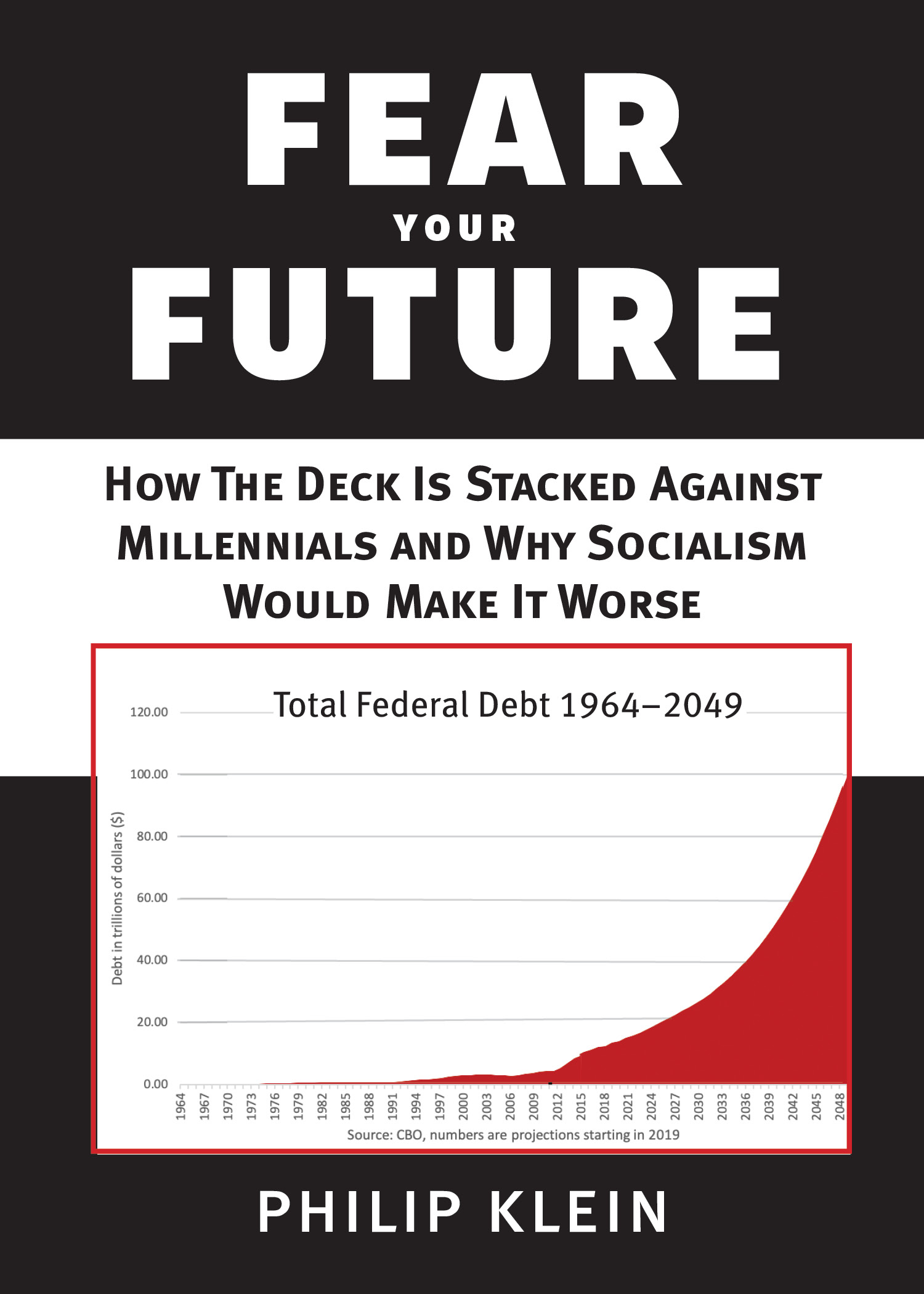
NR –
Our modern predicament suggests that the entropic qualities of liberal democracy are vitiating those sources of America’s distinctive vigor. We find it increasingly tempting to construct a European welfare state because we find it increasingly difficult to reject what Charles Murray calls the ‘European Syndrome’—the belief that, as he phrases it, ‘human beings are a collection of chemicals that activate and, after a period of time, deactivate,’ a worldview dictating the conclusion that ‘the purpose of life is to while away the intervening time as pleasantly as possible.’ The individualism that worried Tocqueville culminates in the self-absorption that worries Murray, leaving us disposed to regard work, family, and community as more trouble than they’re worth, and piety and patriotism as contemptible delusions
Dennis Poindexter –
Eberstadt’s most striking statistics are the growth of these programs between 1960 and 2010. In constant 2010 dollars, entitlement programs grew from about $250 billion to $2.2 trillion. Given that the U.S. population also grew during this time, perhaps a more useful comparison is per capita entitlements, which grew from about $1000 per person in 1960 to over $7000 per person in 2010, a staggering seven-fold increase.
The increase in entitlements as a percentage of total federal expenditures is another troubling trend. In 1960, entitlements accounted for about 30 percent of federal budget outlays, but in 2010 that figure had climbed past 65 percent. In other words, nearly two-thirds of government spending is for entitlement benefits. Eberstadt uses this trend to raise the possibility that entitlement expenditures might eventually “squeeze out” other federal programs, particularly those mandated by the U.S. Constitution
Duane McMullen –
Readers will draw their own conclusions, but people wanting a quick introduction to one of the most important policy debates in the United States today (and one with significant implications for global power politics, if Eberstadt’s analysis is correct) will do well to consult this useful work.